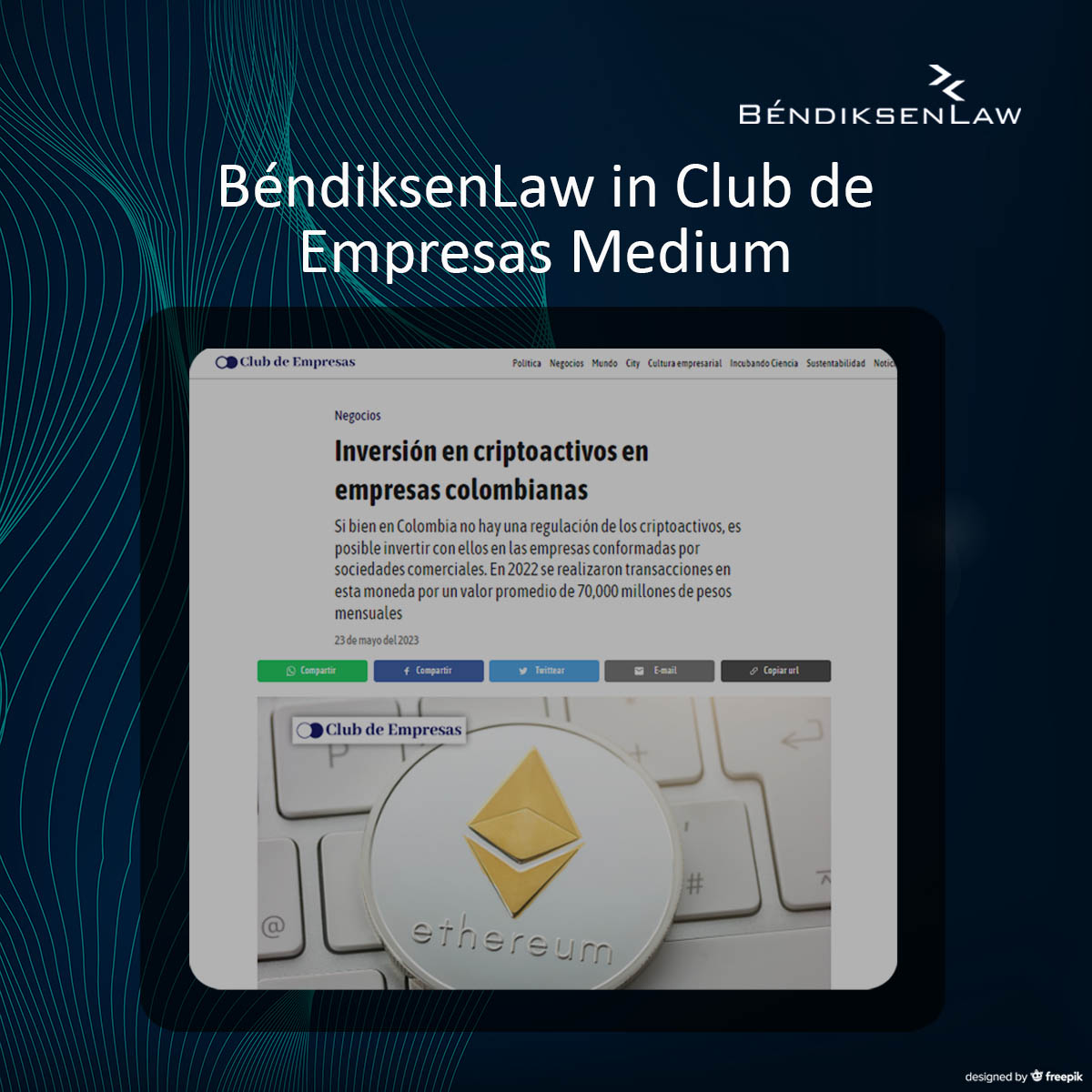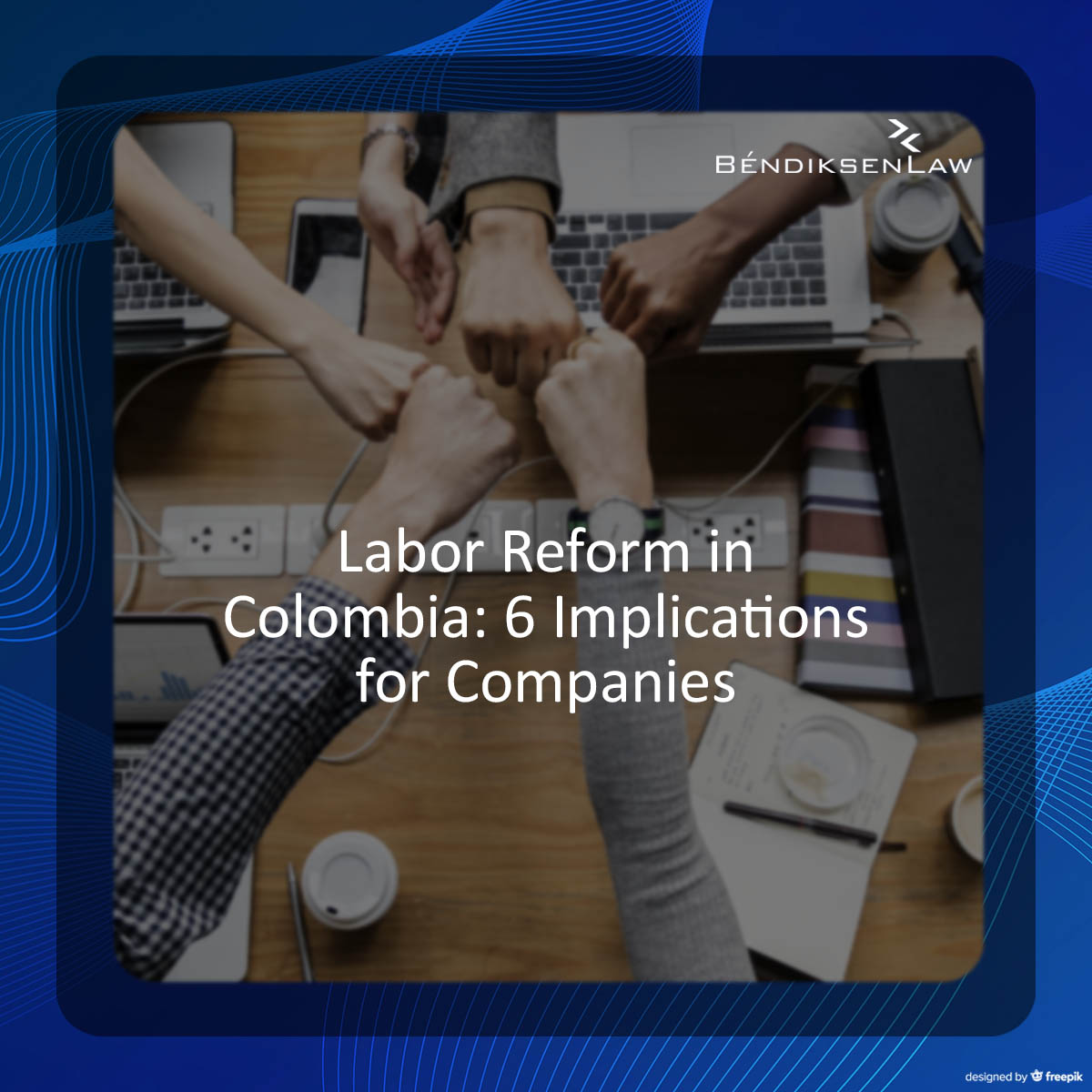Source: click here
Jaime G. Béndiksen, founder of BéndiksenLaw, affirms that multinational corporations have maintained, for many years, important investments in Colombia, contributing to the financing of the expenses and investments of the State, paying taxes and contributing to the economic growth and development of the country. He warns that with the Tax Reform Law 2277 of 2022 this will surely change.
For this graduate in Law from the Autonomous University of Mexico, with a master’s degree in Comparative Jurisprudence from the University of New York and a doctorate in Law, the tax burden currently borne by multinational companies, both affiliates or subsidiaries of national companies and foreign parent companies, and the additional charges that the 2022 tax reform imposes on them, will surely impact their operations.
He reminds readers that the income rate paid by national companies in Colombia is 35%. In his words, “it’s a horrendous percentage.”
He notes that the OECD last year analyzed tax rates in a sample of 117 countries. Colombia is one of the countries with the highest rates in said sample. Other countries’ average fee is 20%.
Ours is supremely high. The taxation of multinational companies was already disproportionate, a situation that is aggravated by the additional burdens imposed by the tax reform.
He explains that, taken together and simultaneously, all the taxes set forth by the tax reform can have a cascading effect that translates into a confiscatory effect, prohibited by our Constitution:
This will discourage investment and saving. In addition, it could have adverse repercussions on economic growth and job creation in the country.
Although some of the purposes of the tax reform, such as the protection of the environment, the promotion of health or the reduction of social inequality, are laudable, this does not justify that the reform neglects or completely ignores the constitutional principles of taxation.
The positive of the tax reform for national companies and foreign entities
A positive point of the tax reform, as Béndiksen points out, is article 240 on the reduction of rates for certain taxpayers and the reduction of rates for national companies and foreign legal entities.
There is a reduced rate of 15% for 10 years for certain new projects or remodeling or expansion of existing projects in hotels, ecotourism theme parks and / or agrotourism.
Similarly, a reduced rate of 15% for publishing companies, legal persons incorporated in Colombia, whose economic activity and corporate purpose is exclusively book publishing under the terms of Law 98 of 1993.
Rate increase as a negative point
For Béndiksen, it is very serious that the tax reform presents an increase in income tax rates for national companies and foreign legal entities:
A rate of 40% for financial institutions, insurance and reinsurance entities, stock brokerage firms, stock market infrastructure providers and others. For the periods 2023 to 2027, the taxable income will be the same or greater than 120,000 UVT, with advance payment of 100% in two equal installments.
On the other hand, there are rates of 40% or 45% for the extraction of hard coal (stone coal) and extraction of lignite coal. This is a “taxable income equal to or greater than 50,000 UVT in an aggregate manner with a related parties”.
Watch the webinar (in Spanish) here
If you want to know more, do not hesitate to contact us









